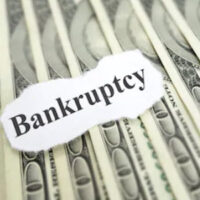Retirement Accounts and Your Bankruptcy Case

In one of life’s many injustices, you can be too poor to file for bankruptcy, but you cannot be too rich. Even though Tax Day is still nearly half a year away, numerous people are anticipating the arrival of their income tax refunds so they can spend them on a chapter 7 or chapter 13 bankruptcy filing. If you have misgivings about filing for bankruptcy because your assets and income are substantial, take heart. Plenty of people wealthier than you have filed for bankruptcy, run up another round of debts, and then filed for bankruptcy again. More relevant to your situation, though, is the fact that you are not the only person with a retirement account who has ever filed for bankruptcy. If this were not the case, then there would not be laws in place about how a bankruptcy filing affects your retirement account. If you are considering filing for bankruptcy protection and want to avoid jeopardizing your retirement savings, contact a Miami chapter 13 bankruptcy lawyer.
ERISA and Florida Laws Protect Your Retirement Accounts From Creditor Claims
Federal and state laws protect your retirement pension and employer-provided retirement account from most creditor claims, as well as from mismanagement by fiduciaries. The Employment Retirement Income Security Act of 1974 (ERISA) is a federal law designed to protect the money in retirement accounts from anyone except the employee and his or her dependents. Florida laws also protect retirement accounts from creditor claims. According to ERISA, the money in a retirement account cannot become part of your bankruptcy estate, and the court may not use it to settle your debts.
The only court order you have to worry about removing money from your retirement account is a qualified domestic relations order (QDRO). The amount that your retirement account has increased in value during your marriage is a marital asset, so the court may award a share of it to your ex-spouse. If the judge issues a QDRO, a portion of your retirement income goes to your ex-spouse each month, instead of or in addition to alimony. Not all divorce cases where one spouse has a retirement account involve a QDRO.
Stay Out of Trouble by Filing for Chapter 13 Bankruptcy
If your savings are not in a retirement account protected by ERISA, you might still be able to file for bankruptcy protection without putting them at risk. The best way to do this is to file for bankruptcy under chapter 13. Whereas chapter 7 bankruptcy gives the bankruptcy court the right to liquidate your non-exempt assets to settle your debts, chapter 13 does not. Instead, it requires you to make payments in installments for several years to settle your debts for less than you originally owed. If you can do this successfully, then your savings and all of your other assets will be safe.
Work With a Debt Lawyer About Filing for Bankruptcy Before Retirement
A South Florida debt lawyer can help you discharge your debts but keep your retirement savings. Contact Nowack & Olson, PLLC in Miami, Florida to discuss your case.
Source:
dol.gov/general/topic/retirement/erisa#:~:text=The%20Employee%20Retirement%20Income%20Security,for%20individuals%20in%20these%20plans.
